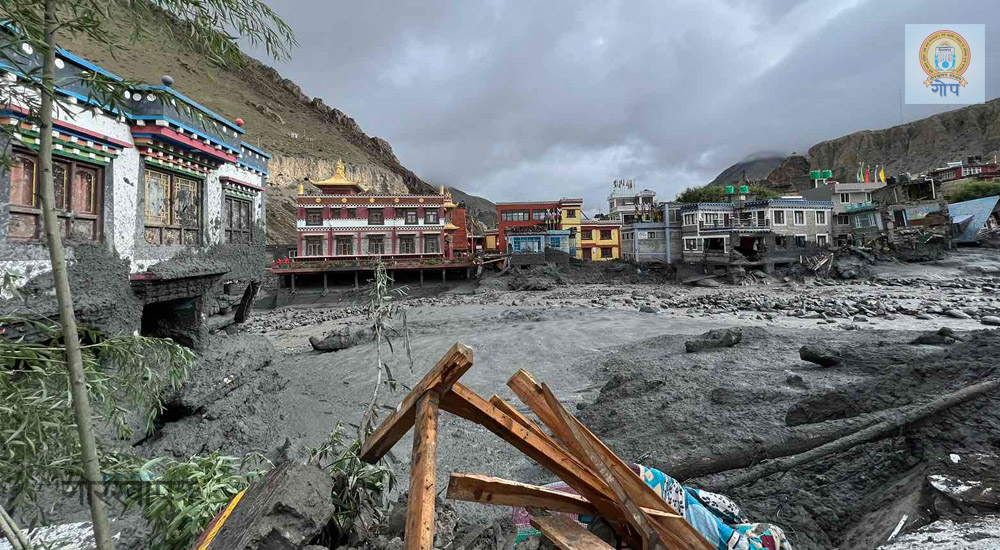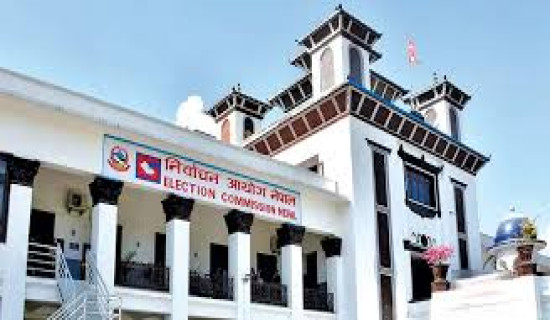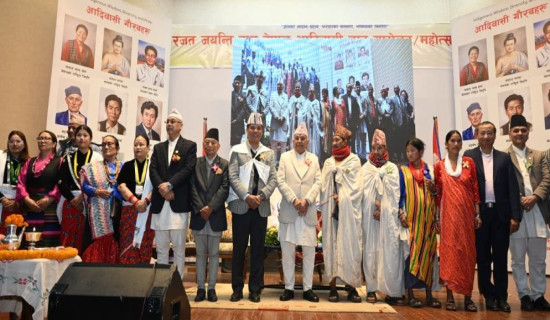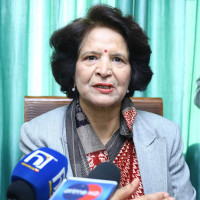- Monday, 9 February 2026
Uncommon floods may be due to climate change
Kathmandu, Aug. 19: Nepal has been experiencing a rising frequency of landslides and floods in recent years. This problem is not unique to Nepal, a country with numerous glacial lakes, but rather a reflection of the global impact of climate change as experts warned.
These recurrences, set in motion by heavy rainfall and other contributing factors, are becoming increasingly frequent and resulting in substantial harm to both communities and infrastructure.
A recent flood in the Kagbeni River in Mustang on Sunday caused widespread destruction. The floodwaters, triggered by a landslide that blocked the river upstream, swept away 29 houses and displaced over 150 people.
The disaster also claimed a motorable bridge, a suspension bridge, a dozen vehicles, including an excavator, and three temporary bridges along the Jomsom-Korala road section. The incident underscores the fragile relationship between nature's forces and human settlements, leaving behind a trail of confusion and loss, according to various media reports.
According to geologist Dr. Basanta Adhikari, while the precise cause of the flood in the Kagbeni River remains unknown, the incident is believed to be an uncommon occurrence.
The recorded 25 mm of rainfall
might not appear significant, but in the rain shadow region, it is regarded as heavy.
The region's terrain became loose and less compact due to the construction of Kaligandaki Valley, and even a small amount of rainfall triggered a significant disaster in the area, Dr. Adhikari said.
The Tiri Khola, a tributary located upstream of the Kag Khola, raises the possibility of a dam forming in specific areas. The flow of debris from Tiri Khola into Kag Khola could potentially be a contributing factor to the disaster, he informed.
Dr. Adhikari mentioned that attributing the recurring disaster solely to climate change is uncertain, as similar events occurred in the past. However, the rising frequency of these incidents over the past few years could potentially suggest a link to climate change.
"With the approaching Conference of Parties (COP 28), it is important for the Nepal government to raise the matter of extreme events on an international platform. By showcasing the nation's suffering, they can seek funds for addressing loss and damage,” he said.
Mandira Shrestha, Senior Water Resources Specialist at the International Centre for Integrated Mountain Development (ICIMOD), said that the likely cause of the disaster in Kagbeni may be due to the continuous rainfall that occurred in the upper catchments leading to a possible landslide dam outburst flood.
The only rainfall station located in Jomsom measured 25.4 mm which is considered to be high in such a rain shadow area. She said that further investigation is needed to find out the exact cause of the flood.
Glaciologist Dr. Rijan Bhakta Kayastha, who is a Professor at the Department of Environmental Science and Engineering, School of Science, Kathmandu University (KU), the rainfall recorded at the Jomsom station was not extensive, and that there is no recorded rainfall data for the upper region.
The Kag Khola, spanning a significant length, is primarily fed by glacier water and the water level could rise due the rainfall.
The hills in the upper regions are composed of sediment, and the rain shadow area might experience wet conditions that extend inward, potentially triggering debris flow into the river downstream, according to Dr. Kayastha.
"Rainfall has been documented in regions where snowfall used to occur, causing the sediment to become moist and prone to flow due to its weakened and fragile state,” he added.
According to Pramesh Gurung, the spokesperson for Baragunj Muktichhetra Rural Municipality, the local body impacted by the flood, rescue efforts are underway. And, relief supplies are being distributed to the affected households.








-square-thumb.jpg)








